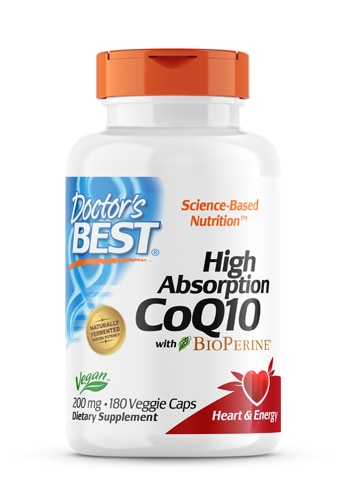[vc_row][vc_column][vc_column_text]If you
take supplements to boost your health, you are in good company.
About 77% of American women and 68% of men report taking supplements, according to the
Council for Responsible Nutrition. That includes 81% of people ages 55 and older.

However, taking supplements on an empty stomach can be a big mistake, with consequences ranging from an upset stomach to limiting the supplement’s effectiveness.
Not all supplements should be taken with food. But for many others, downing your pill with a meal is the way to go. Following are 10 supplements you should not take on an empty stomach.
Taking Supplements on an Empty Stomach - What to Avoid
Multivitamins
There are two good reasons not to take
multivitamins on an empty stomach. For starters, your body absorbs some of the individual vitamins in this pill better if you take it food than without.
Also, taking a multivitamin when you haven't eaten often results in an upset stomach.
WebMD recommends taking your multivitamin with whichever meal you prefer – breakfast, lunch or dinner.
Probiotics
Probiotics are made up of bacteria and yeast that are good for your body, helping to keep you healthy.
†
It is best to take probiotics slightly before or during your meals. Doing so will help reduce the chances that stomach acid will kill the probiotics, Dr. Elsie Koh, medical director of Azura Vascular Care,
tells The Healthy.
Selenium
Some people take selenium to reduce thyroid inflammation, promote bone prostate health, and boost their immune system.
†
Pharmacist Suzy Cohen writes that taking selenium with a snack can reduce the risk of both diarrhea and stomach upset.
Fat-soluble vitamins
Micronutrients -- vitamins and minerals -- are crucial to your well-being. Most Americans get enough
micronutrients, although there are problem areas. For example, vitamin D deficiency is much higher in black Americans than in other groups,
reports the Centers for Disease Control and Prevention.
Fat soluble vitamins require fat if your body is going to absorb them. For that reason, you should take the following vitamins while consuming foods with fat.
Fish oil
Taking
fish oil with a high-fat meal can help your body to better absorb healthful omega-3 fatting acids,
writes Dr. Tod Cooperman, president, founder and editor-in-chief at ConsumerLab.com.
In addition, pairing this supplement with food can help you avoid regurgitation or burping of the oil, Dr. Elroy Vojdani -- functional medicine expert and founder of Regenera Medical in Los Angeles --
tells The Healthy.
Calcium carbonate
If you take calcium carbonate as a way to boost the strength of your bones
†, be sure to do while eating.
When you eat, your stomach produces acids that help your body absorb
calcium carbonate,
writes registered dietitian Katherine Zeratsky at the Mayo Clinic website.
Echinacea
Many brands of this cold-and-flu-fighting supplement urge you not to take it on an empty stomach.
† That is because doing so can lead to nausea. Instead, take
echinacea with food – or at least a very large glass of water.
Iron
This suggestion is bound to generate a bit of controversy. It is a known fact that taking
iron on an empty stomach actually helps your body absorb the mineral.
However, some people who use this approach report side effects such as cramps, nausea and diarrhea. If this happens to you, the
National Institutes of Health recommends taking iron with a small amount of food.
Boswellia serrata extracts
These extracts -- which are often sold on their own as a supplement, or combined with glucosamine and chondroitin in supplements intended to boost joint health -- are fat-soluble.
† That means you may absorb them better if you eat them with fatty foods,
Cooperman writes at ConsumerLab.com.
CoQ10
This antioxidant -- which is often taken to boost heart, pancreas, liver and brain health
† -- should be taken with a fatty meal or other food to help your body absorb it, writes Cohen.
†These statements have not been approved by the Food and Drug Administration. These products are not intended to diagnose, treat, cure or prevent disease.[/vc_column_text][/vc_column][/vc_row][vc_row][vc_column][vc_text_separator title="Featured Products" border_width="2"][vc_row_inner equal_height="yes" content_placement="middle" gap="35"][vc_column_inner width="1/3"][vc_single_image image="191854" img_size="full" alignment="center" onclick="custom_link" img_link_target="_blank" css=".vc_custom_1769203259839{padding-right: 7% !important;padding-left: 7% !important;}" link="https://www.vitacost.com/vitacost-probiotic-10-20-10-strains"][/vc_column_inner][vc_column_inner width="1/3"][vc_single_image image="188396" img_size="full" alignment="center" onclick="custom_link" img_link_target="_blank" css=".vc_custom_1769203324608{padding-right: 7% !important;padding-left: 7% !important;}" link="https://www.vitacost.com/davinci-laboratories-daily-best-ultra-multivitamin"][/vc_column_inner][vc_column_inner width="1/3"][vc_single_image image="188728" img_size="full" alignment="center" onclick="custom_link" img_link_target="_blank" css=".vc_custom_1769203376142{padding-right: 7% !important;padding-left: 7% !important;}" link="https://www.vitacost.com/carlson-chelated-magnesium"][/vc_column_inner][/vc_row_inner][/vc_column][/vc_row]
 However, taking supplements on an empty stomach can be a big mistake, with consequences ranging from an upset stomach to limiting the supplement’s effectiveness.
Not all supplements should be taken with food. But for many others, downing your pill with a meal is the way to go. Following are 10 supplements you should not take on an empty stomach.
However, taking supplements on an empty stomach can be a big mistake, with consequences ranging from an upset stomach to limiting the supplement’s effectiveness.
Not all supplements should be taken with food. But for many others, downing your pill with a meal is the way to go. Following are 10 supplements you should not take on an empty stomach.



